Individuals and Institutions as Mechanisms of Social/Governmental Change
- The African American history has its rooting from the great slave trade.
- The need for the African Americans to be treated like lawful United States citizens has been noted in the years preceding the slave trade.
- However, the institution of slavery was entrenched in the American society long after independence.
- The civil rights movements were formed to advocate for the abolition of slavery (Newman, 2004).
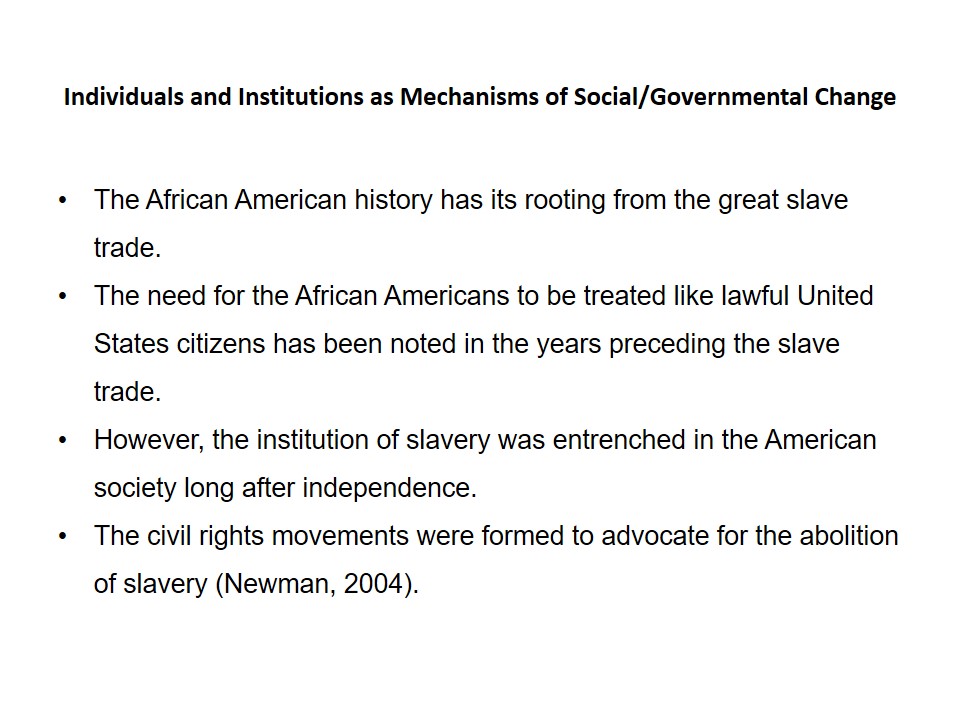
African American Civil Rights Movements
- They advocated for Black Americans’ right during the 1950s and 60s.
- The main aim of these movements was to spearhead the mobilization of the Black Americans and other races interested in the liberty of the Black Americans.
- The strengths of these movements were the large numbers thus mobilization was a pillar of their success (Sirimarco, 2005).
- The existence of large masses both Black and white having a staunch backing to the realization of Black Americans rights was a point of reliance by the movement’s leaders (Romano, 2006).
- The acknowledgement of leaders such as Martin Luther King Junior was through the backing of defiant masses who organized boycotts (Riches, 1997).
- When the movements gained momentum, some leaders used that opportunity to spread hate and radicalism in the civil rights movements.
- It was that reason that brought about the breaking away of the umbrella movements to simple organizations, which were based on different ideologies (Newman, 2004).
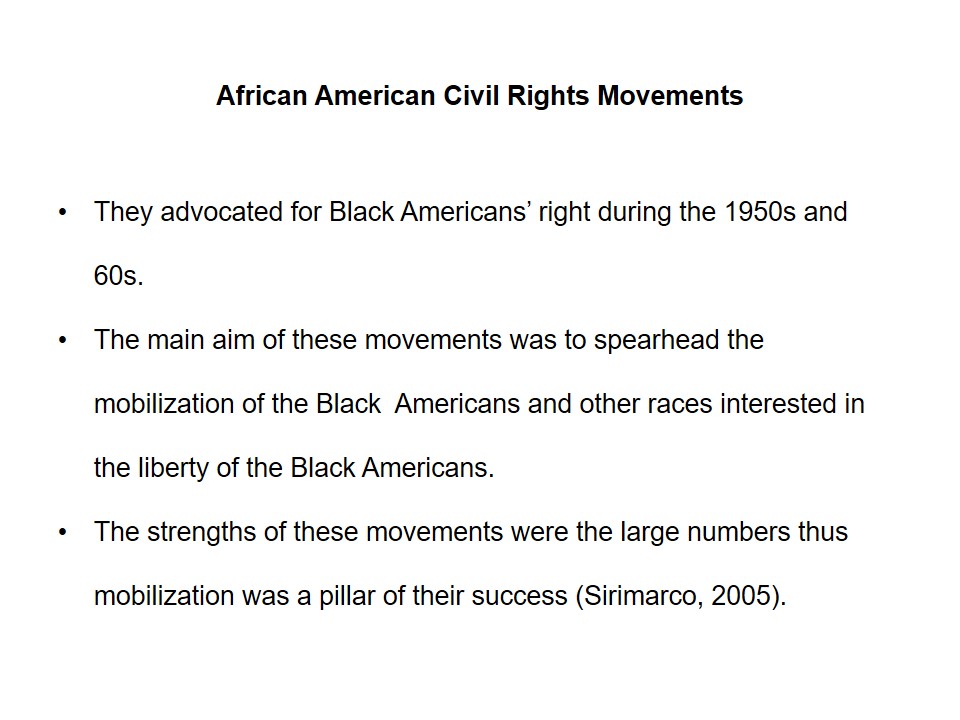
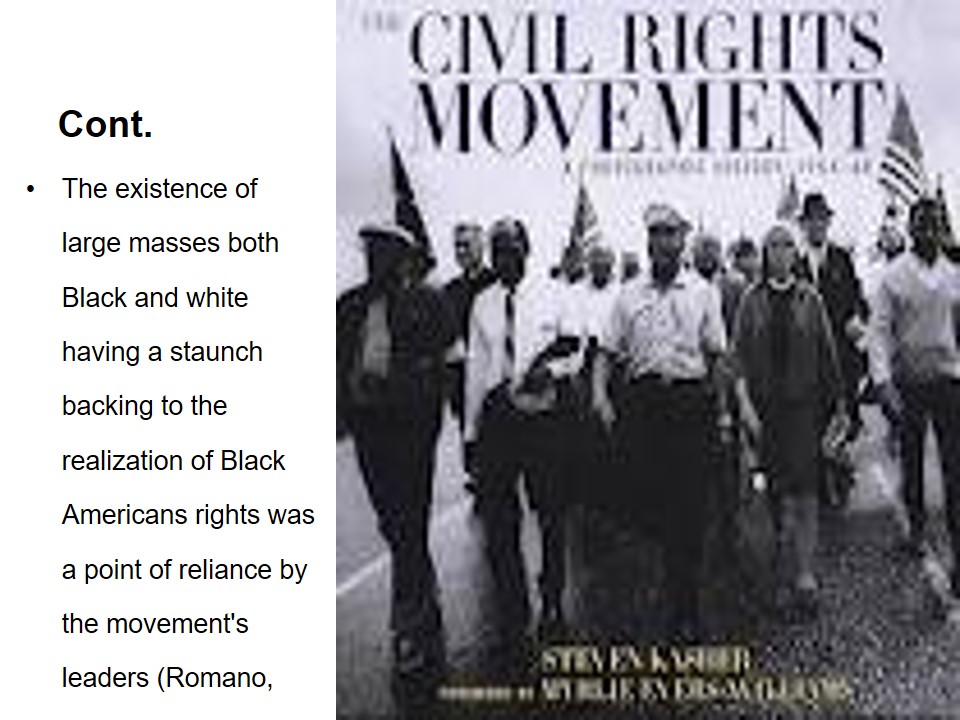
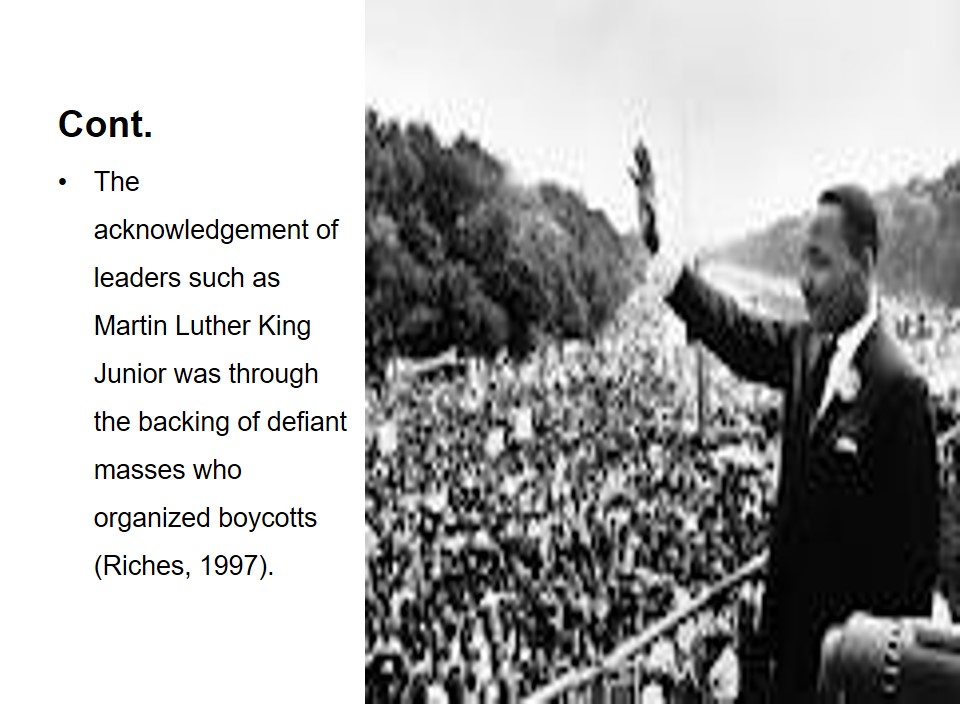
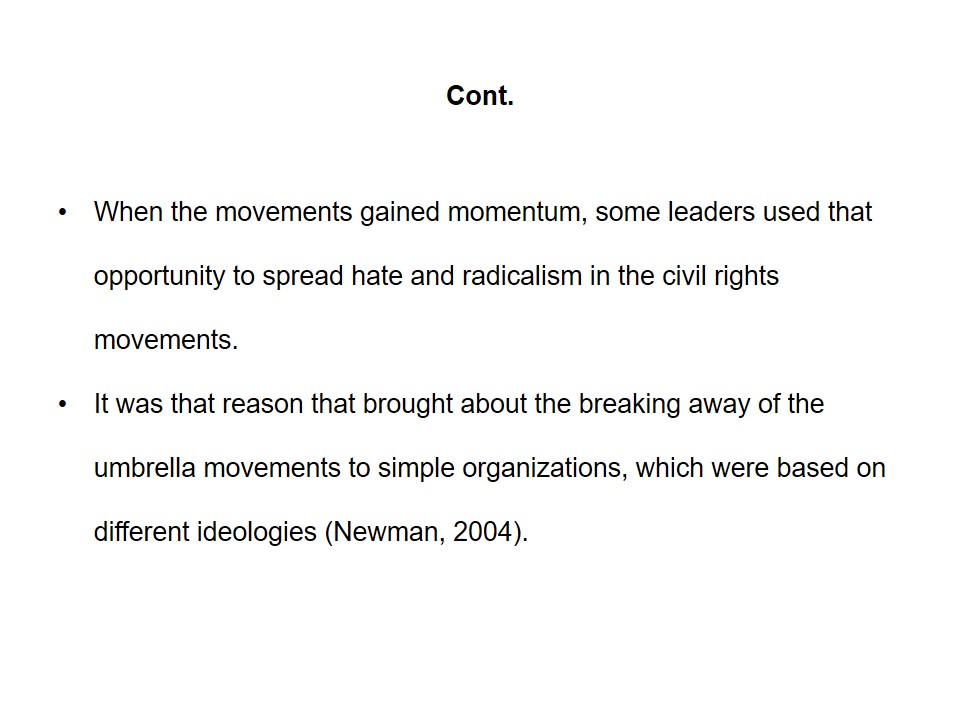
Historical Systems of Power, Governance, and Authority
- The war of independence was fought by American loyalists against the British colonial government (Williams, 2003).
- This war marked a defining moment in American history.
- The Continental army, led by George Washington, brought independence to Americans (Williams, 2003).
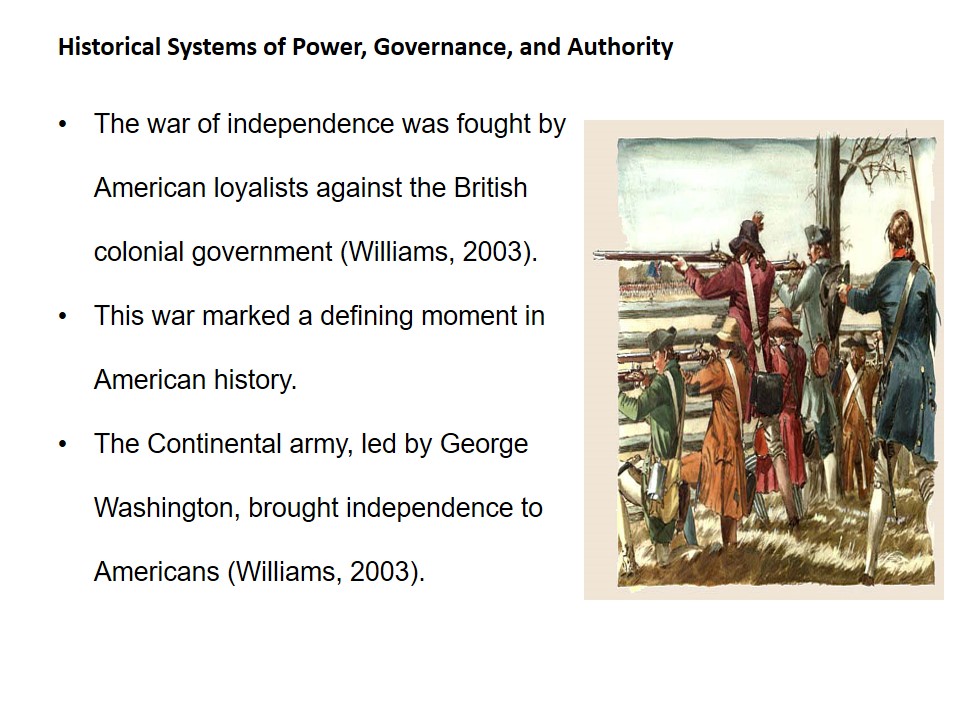
The 1776 war and independence
- The war and the signs of the revolution were first witnessed in Pennsylvania (Williams, 2003).
- At the time the colonial government had its capital at Philadelphia (Williams, 2003).
- The main army which took the first step in the revolution were organized and trained in Philadelphia.
- The United States Constitutional Congress converged in Philadelphia to deliberate on constitutional framework.
- Gunpowder was produced in the state of Pennsylvania.
- The gunpowder played the role of supplementing the weaponry (Williams, 2003).
- Financial institutions also participated in the revolution.
- Robert Morris was said to have been a main financier of the revolution (Williams, 2003).
- There are other banks that supported the revolution.
- The leaders in these movements had a duty of making sure that the movements did not lose their focus on independence agenda.
- The most challenging thing about these movements was how to unite all states to focus on one goal.
- The revolution was also boosted by the French army support (Williams, 2003).
- Benjamin Franklin negotiated the aid of France which greatly helped.
- The establishment of a unifying strategy to approach the revolution was not easy (Williams, 2003).
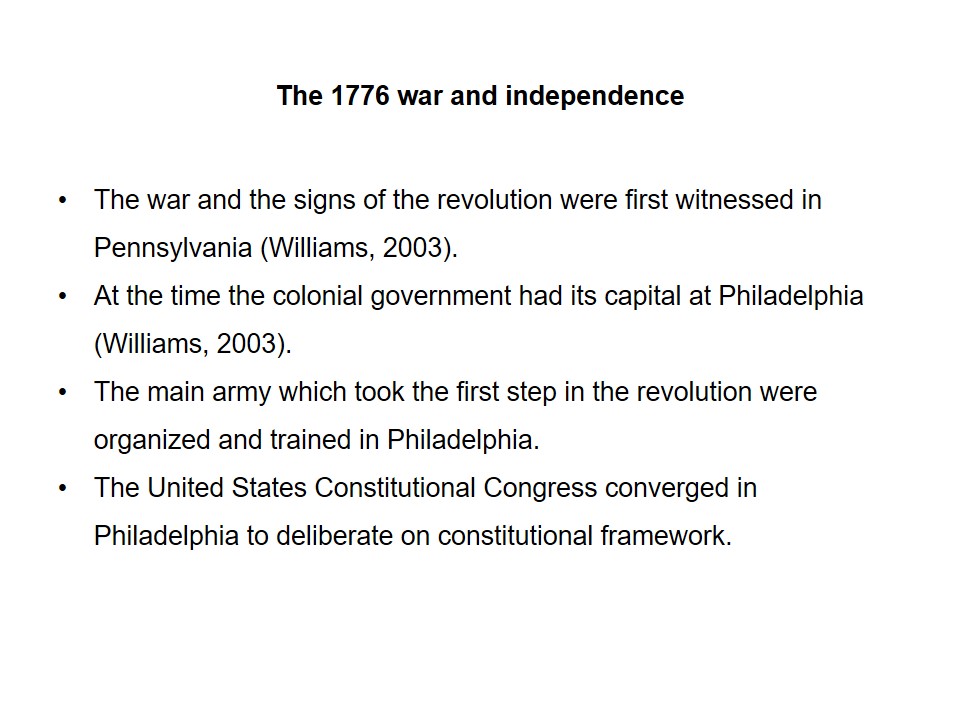
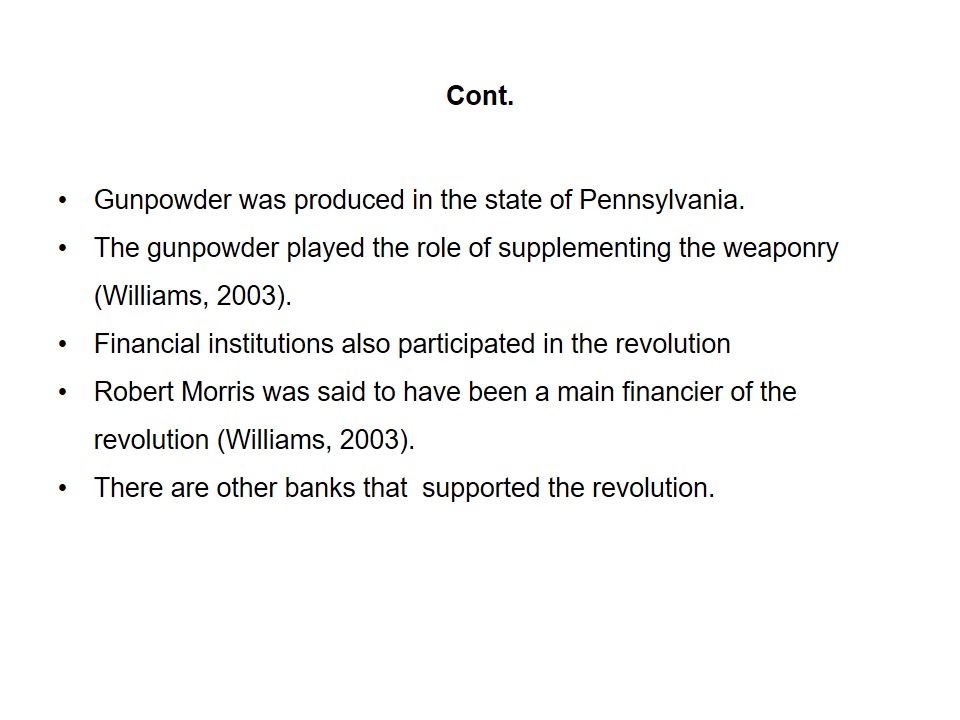
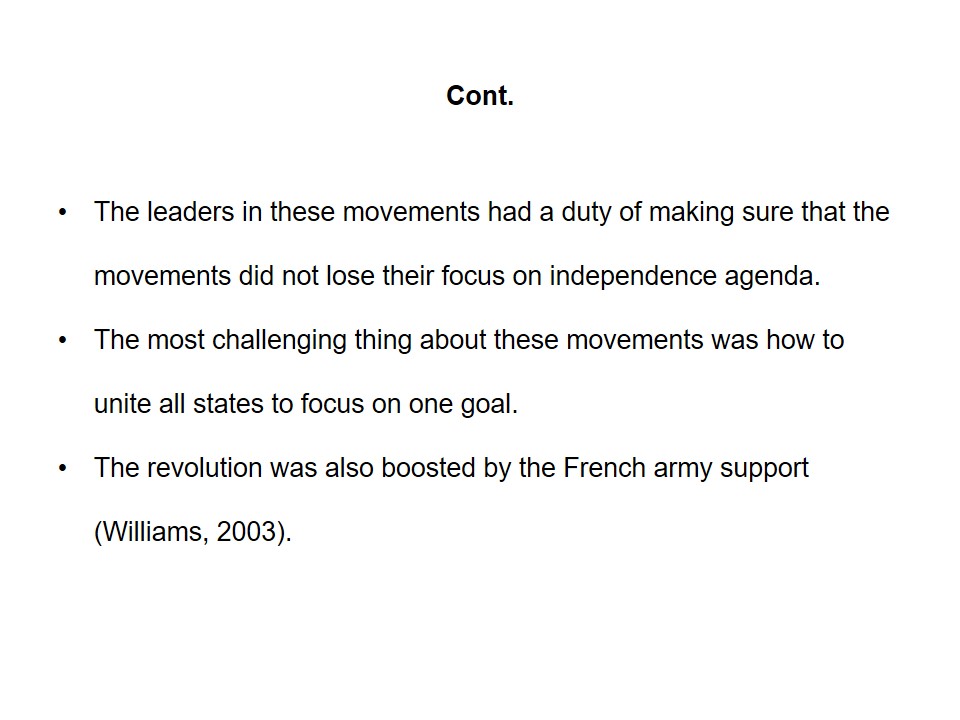
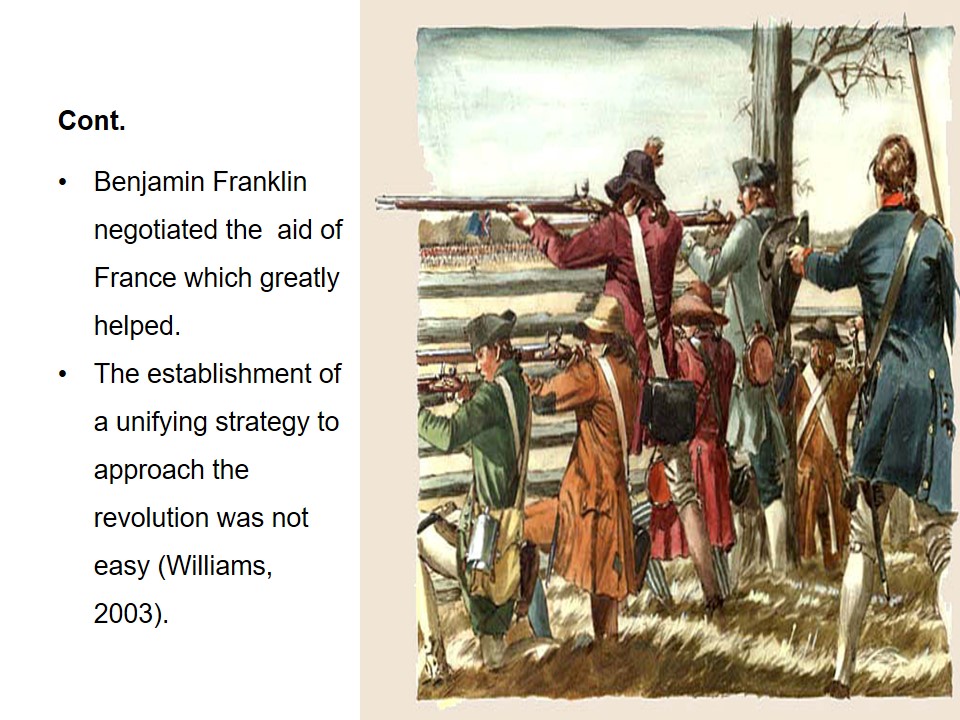
The First World War
- The war started in July 1914 and ended in November 1918 (Simkins, Jukes & Hickey, 2003).
- The war elaborates on the theme of Historical Systems of Power, Governance, and Authority.
- More than 70 million personnel participated in the war.
- There were advanced weapons used during the war .
- The colonial powers trained Africans to participate in the war (Simkins, Jukes & Hickey, 2003).
- 9 million people died in the war.
- Masts were used for protection.
- Destruction of property was witnessed (Simkins, Jukes & Hickey, 2003).
- The tactics of the war could not keep up with the technological growth whereby advanced weaponry was used.
- The war was a mixture of old war tactics competing with modern advanced technology (Simkins, Jukes & Hickey, 2003).
- The trench warfare marked the last stages of the war.
- The big tanks became irrelevant and ground assaults increased.
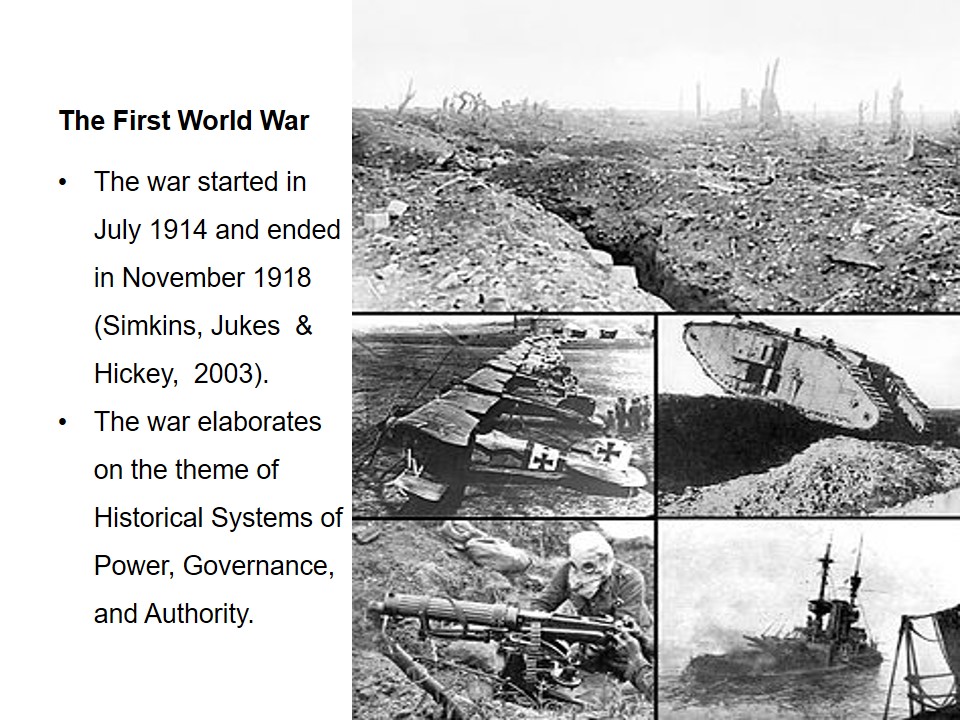
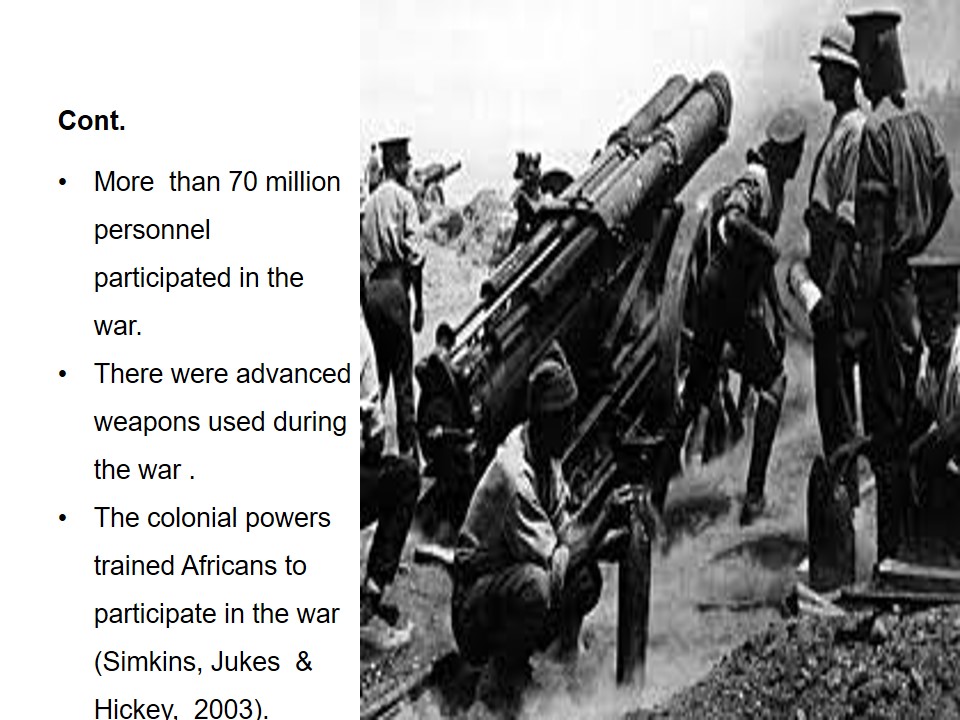
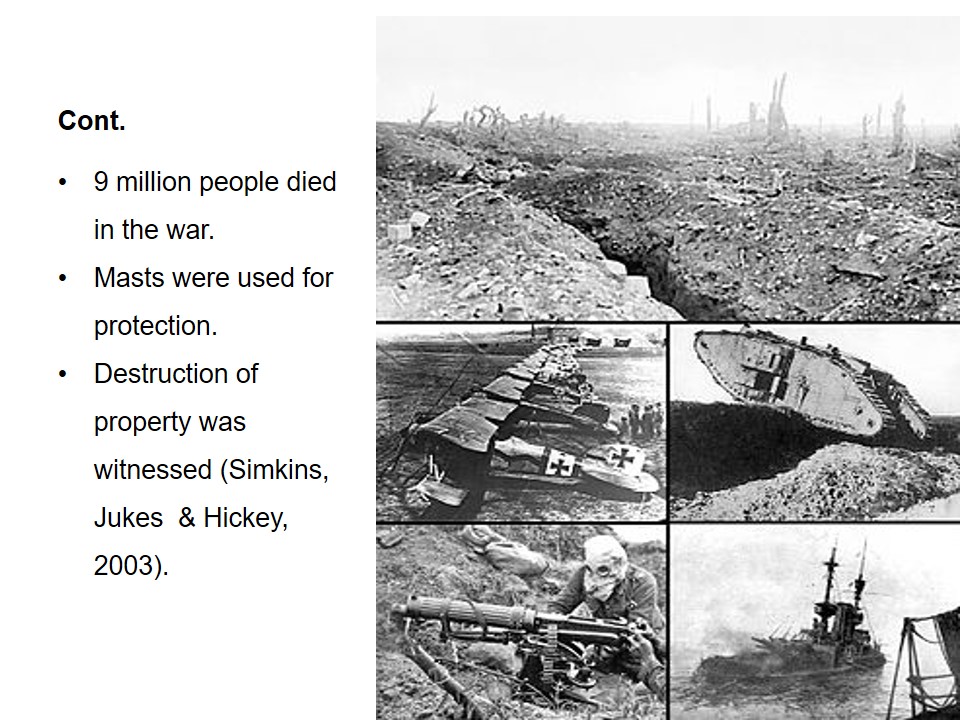
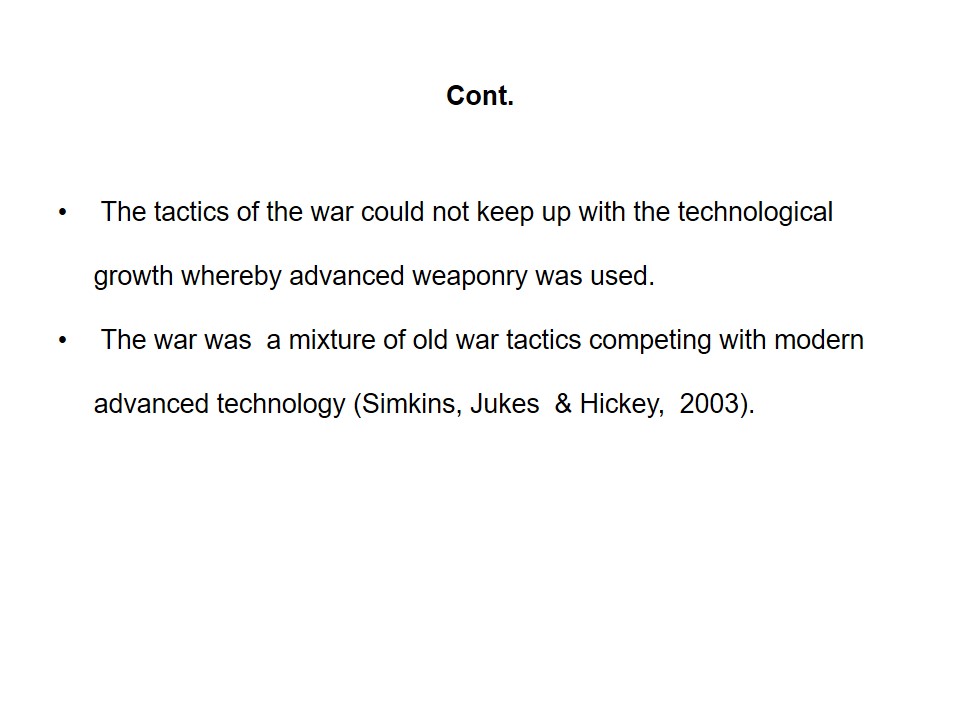
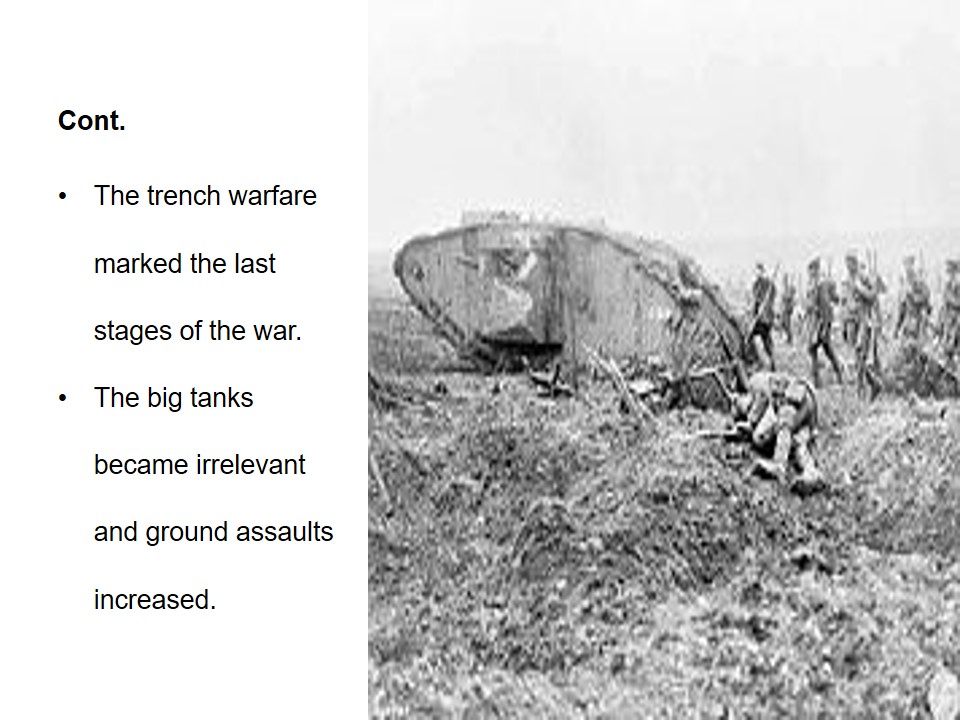
African colonialism
- This elaborates on the theme of Geography and the Development/Diffusion of Human Society.
- In the late 19th and early 20th century, Africa was dominated by the super powers of Europe (A history of the colonization of Africa by alien races, 2011).
- The scramble and partition of Africa took place during African colonialism.
- There are many motivating factors that led to the scramble and partition of Africa.
- It is agreeable that economic, social and political factors were the motivating factors (A history of the colonization of Africa by alien races, 2011).
- The economic reasons became so predominant and growth of cash crops and shipping other minerals became a very common activity.
- During different stages of colonialism, resistance occurred which was met with equal resistance terms.
- The peak of colonialism was at the end of the second world war.
- Different countries used different ways to handle the issue of colonialism.
- The British adopted the direct and indirect rule while the French used the assimilation method.
- Much of the raw material used in the overseas industries was shipped from Africa (A history of the colonization of Africa by alien races, 2011).
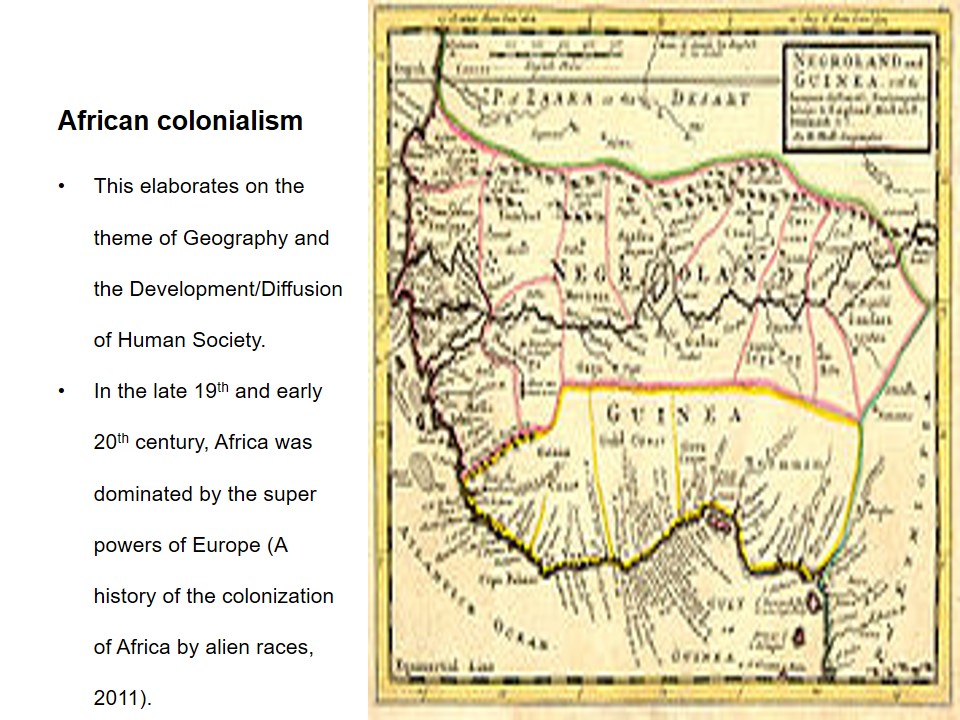
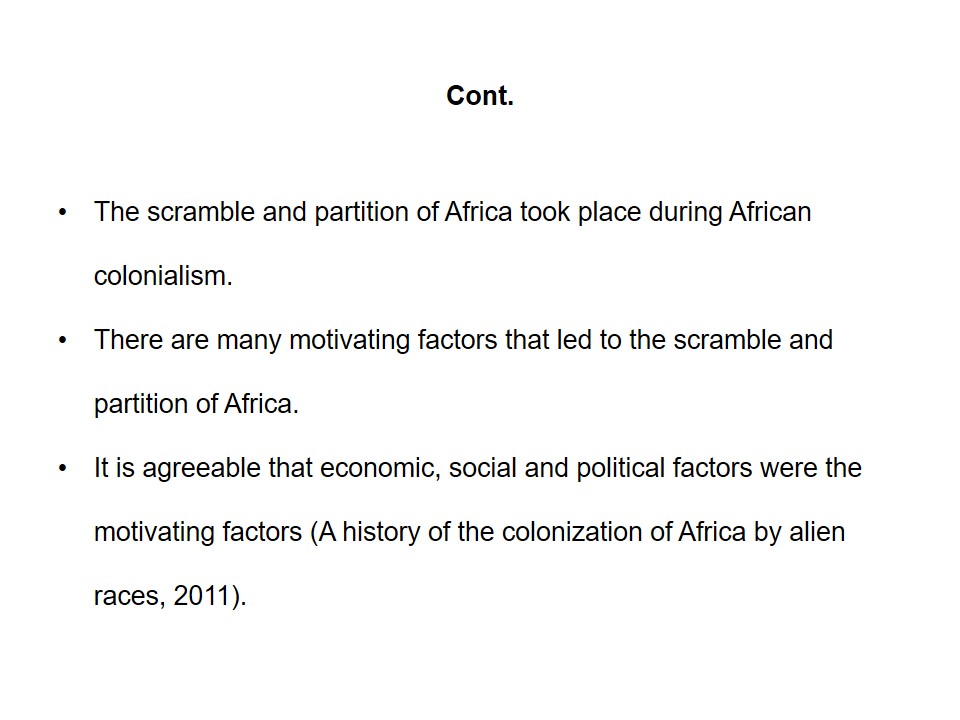
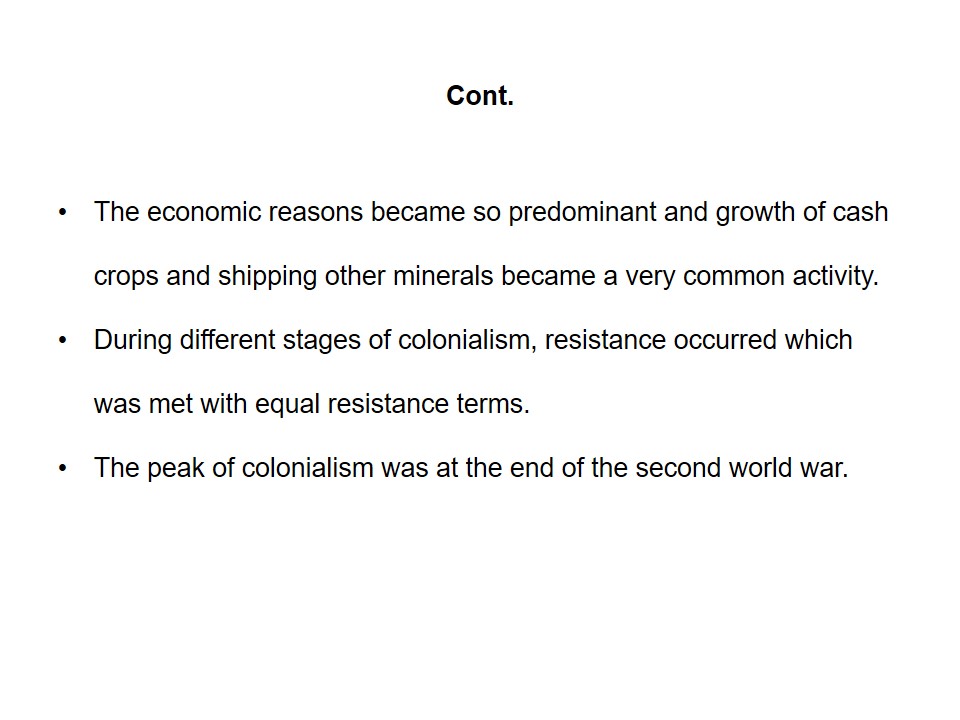
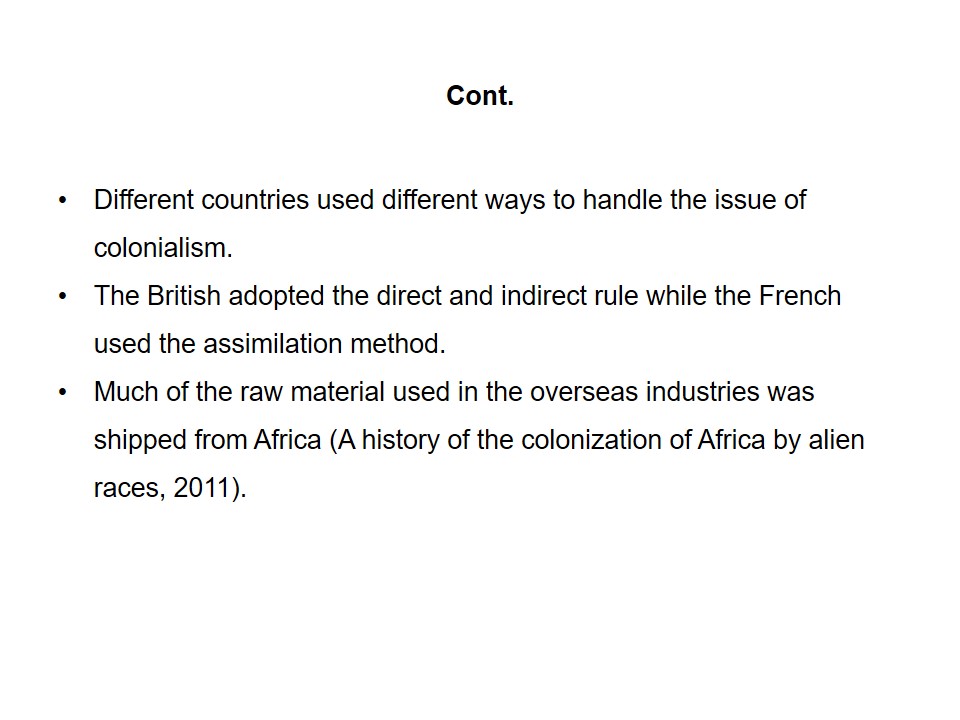
Analysis
- Slavery was an institution that was born out of slave trade.
- The Black Americans advocacy for rights was achieved through movements.
- This aspect elaborates on the theme of Individuals and Institutions as Mechanisms of Social/Governmental Change.
- The 1776 revolution was based on the varied war tactics.
- The war brought independence to the American people.
- This aspect elaborates on the theme of Historical Systems of Power, Governance, and Authority.
- African Colonialism and the First World War were great events that characterized the world between the late 19th and early 20th centuries.
- The First World War was fought between the years 1914 and 1918.
- The first world war was a war based on allies.
- On the other hand, African colonialism took place in the late 19th century and the early years of the 20th century.
- The search for African colonies was motivated by economic reasons.
- The two events cannot be ignored as they were critical in shaping the world history.
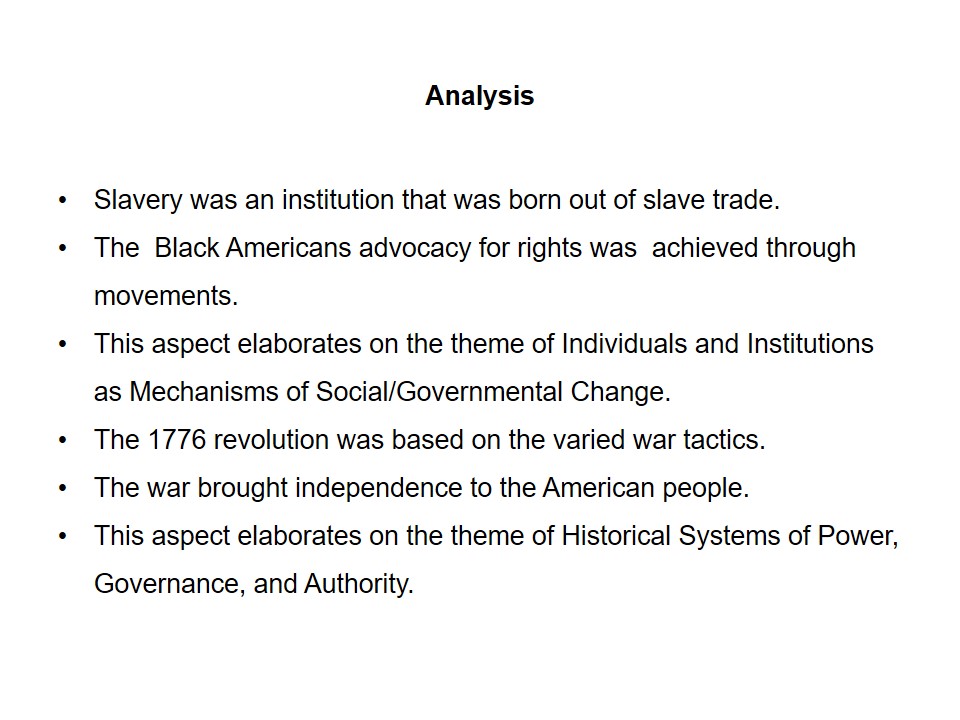
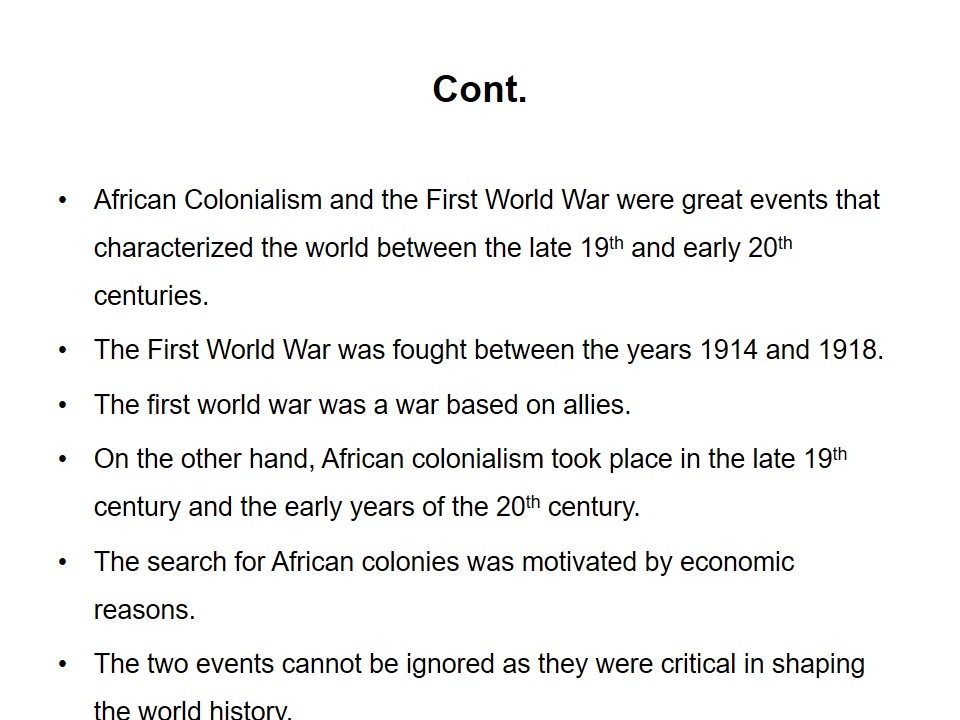
References
- A history of the colonization of Africa by alien races. (2011). United Kingdom: Cambridge University Press.
- Newman, M. (2004). The Civil Rights Movement. Edinburgh: Edinburgh Univ. Press.
- Riches, W. T. M. (1997). The civil rights movement: Struggle and resistance. New York: St. Martin’s Press.
- Romano, R. C. (2006). The civil rights movement in American memory. Athens, Ga. [u.a.: Univ. of Georgia Press.
- Sirimarco, E. (2005). The civil rights movement. New York: Benchmark Books/Marshall Cavendish.
- Simkins, P., Jukes, G., & Hickey, M. (2003). The First World War: The war to end all wars. Oxford: Osprey.
- Storey, W. K. (2010). The First World War: A concise global history. Lanham, MD: Rowman & Littlefield Pub.
- Williams, B. (2003). The declaration of American independence: July 4, 1776. North Mankato, MN: Smart Apple Media.